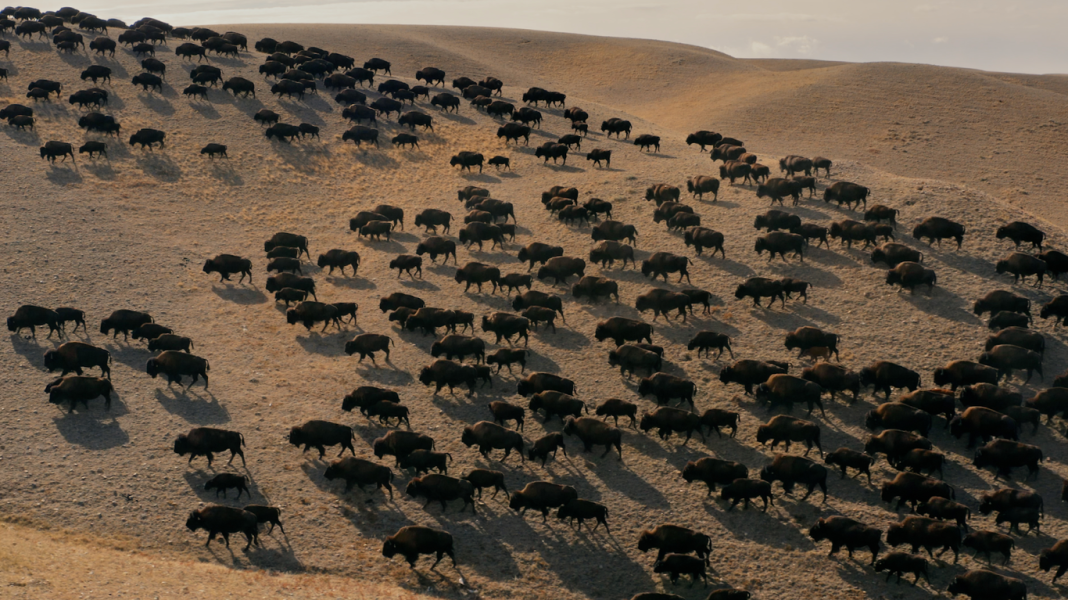The synergy of a powerful story and an equally powerful voice can elevate a narrative from mere information to profound experience. This is precisely what’s anticipated with the upcoming PBS film chronicling the Blackfeet Nation’s decades-long efforts to restore buffalo to their ancestral lands, narrated by the acclaimed Lily Gladstone. This isn’t just a documentary; it’s a deeply resonant cultural moment, bridging historical trauma with a vision of ecological and spiritual restoration, all brought to life by an Indigenous voice that understands its weight.
The Resonance of a Narrator’s Voice
Lily Gladstone’s involvement in this PBS film transcends mere celebrity narration; it is an act of profound cultural alignment. Having recently garnered widespread recognition for her powerful performances, particularly in roles that foreground Indigenous experiences, Gladstone brings an unparalleled authenticity to this vital story. Her voice, inherently steeped in the nuances and gravitas of her own Indigenous heritage, becomes a conduit for a narrative that is both deeply personal to the Blackfeet and universally significant.
The power of a narrator in a documentary is to guide the audience, but with Gladstone, it’s more akin to being invited into a shared understanding. Her delivery promises to imbue the historical context and the ongoing struggle with the respect, empathy, and emotional depth it demands. This choice of narrator is not just about drawing eyes to the screen; it’s about drawing hearts into the narrative, ensuring that the Blackfeet’s enduring journey is heard not as a historical footnote, but as a vibrant, living testament to resilience and kinship.
A Decades-Long Fight: More Than Just Animals
The heart of this film lies in the Blackfeet Nation’s unwavering commitment to bring the buffalo back. For the Blackfeet, the buffalo, or iinnii, are not merely wildlife; they are kin, central to their culture, spirituality, and sustenance. The systematic near-eradication of buffalo was a calculated blow against Indigenous sovereignty and way of life. Consequently, the Blackfeet’s mission to reintroduce them to their lands is far more than a conservation project; it is an act of profound cultural reclamation and ecological healing.
The film delves into the complexities of this decades-long struggle, highlighting not just the biological challenges of rewilding a species but also the political, social, and economic hurdles faced by the community. It’s a narrative of tireless advocacy, scientific partnership, and intergenerational commitment. “Bringing the buffalo home isn’t just about restoring a keystone species to the prairie,” explains a local conservationist involved in the project. “It’s about restoring the spirit of the land and the spirit of our people. They are inextricably linked, and this film will show that connection vividly.” This profound connection underscores the holistic nature of the Blackfeet’s vision: a healthy ecosystem cannot exist without a healthy culture, and vice-versa.
A Story for Today
In a world grappling with climate change, biodiversity loss, and issues of social justice, the Blackfeet’s story, amplified by Lily Gladstone’s voice, offers potent lessons. It’s a testament to Indigenous leadership in environmental stewardship and a powerful reminder of the deep wisdom inherent in traditional ecological knowledge. The film serves as a beacon, illustrating that true conservation goes hand-in-hand with cultural preservation and self-determination.
This PBS production promises to be more than just an educational piece; it is an inspiring call to recognize the immense value of Indigenous perspectives in shaping a sustainable future. It’s a narrative about hope, healing, and the enduring power of a community fighting to restore what was lost, not just for themselves, but for the health of the entire ecosystem.
—




